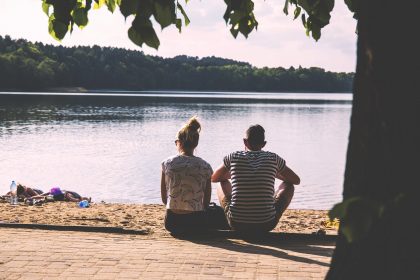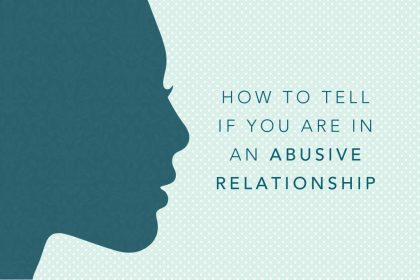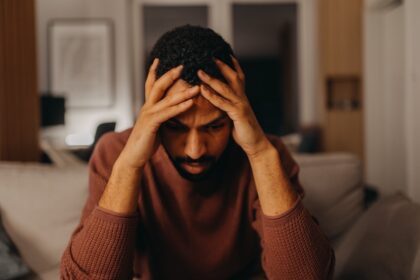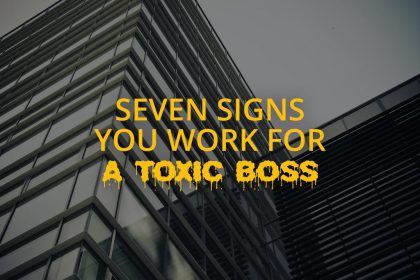What to do if you’re trapped in an abusive relationship in lockdown
Are you – or is someone you know – trapped in lockdown with an abuser? Find out what you can do to stay safe, and who to call if you need to escape.
Lockdown is hard on everyone, but for some people it will be pure hell. Because rather than being safe at home with their loved ones, they’ll be trapped with their abuser – and with no escape.
And not only are they stuck inside the same four walls 24/7 with a controlling bully, but the abuse they’re exposed to is likely to increase too.
Why? Because abusers need to feel in control (their abuse is often an attempt to gain a sense of control), and the current uncertainty will set off all their triggers. As will the risk of losing their job (or the reality of having lost it) and the financial worries of not working.
An abuser will also find it hard to submit to the blanket rules imposed by the lockdown. And they’ll take all these frustrations out on their partner. Into this mix comes the pressure cooker of being cooped up inside together night and day, with no opportunity to let off steam outside the home.
It’s no surprise that domestic violence peaks occur on weekends and bank holidays, at Christmas and at times of political upheaval. So it’s very easy to predict that, sadly, we’ll see a peak right now.
Just look, to compare, at the 27% increase in domestic abuse murders between April 2018 and March 2019, as the country grappled with Brexit – another external factor that will affect us all. (There has been a 63% increase in domestic violence since 2011.)
Already the number of domestic abuser murders have more than doubled since the Covid-19 lockdown, and they only look set to increase.
How can you tell if someone is trapped with an abuser?
So what signs should you look out for to check whether anyone you know needs help? We recently shared the following advice with Unilad:
“Look out for signs that they’re more withdrawn or depressed than you may otherwise expect. Are they free to talk to you, or do they avoid contact? Do they seem more jumpy than usual?
“Can they only talk freely when their partner is out of earshot? Do they worry excessively about their partner or what they may think or do? Or do they blame themselves a lot? And there are the more obvious signs such as physical injuries.”
And what if you do spot the signs? Unfortunately, there’s not much you can do right now. Challenging your loved ones could just put them in more danger while they’re trapped with their abuser. If their abuser gets wind of what you’re saying, they’ll punish your loved one, and prevent them from contacting you again.
Instead, try to be understanding, emotionally supportive and non-critical, and help them to stay strong through this time. Once the lockdown has ended and you can speak to your loved one in private you can address your concerns and offer practical help.
You can also call the National Domestic Abuse Helpline on 0808 2000 247 or contact the helpline via Refuge’s contact form.
What if YOU are trapped with an abuser?
If you are trapped in lockdown with an abusive partner or spouse and you want to escape, or fear you are in danger, remember that you are allowed to leave under the lockdown rules. You can call the helpline above, or 999 if are in immediate danger.
If you aren’t ready or able to leave yet, then try to keep the peace as much as you can. For your own safety, you need to keep your abuser feeling as calm and secure as possible.
Don’t let them get wind of any plans you have to leave – if they feel they risk losing you (or losing control over you) they might step up the abuse, and will attempt to prevent you from leaving. The most dangerous time for many abused partners is when they leave, so please do take care to keep any plans secret.
We spoke to Katherine Rayden, Senior Partner at Rayden Solicitors specialist family lawyers and experts in domestic abuse cases, and asked her for her advice. She recommended:
“Create a safety plan. It helps you to consider ways to keep yourself (and your children) safe. For example, by having a phone with you at all times, building a support network that your partner doesn’t know – others that you can talk to in confidence – and memorising the contact details of charities such as Women’s Aid, Refuge, and the National Domestic Abuse 24 hr helpline, or keeping them in a safe place so you can seek help quickly in an emergency.
“You can seek advice from specialist family lawyers who can get court orders to protect you, and this is still possible during lockdown.”
How do you know if you’re being abused?
Abuse usually creeps up slowly in a relationship. Your partner is often very charming and considerate when you first meet, and you may not have noticed the gradual ratcheting up of control and abuse over the months or years since.
Abuse can happen so slowly and insidiously that you can even come to believe that your relationship is normal – if not happy – or convince yourself that it’s all your fault if things aren’t right.
So it’s important to be able to spot the signs of abuse. Here are 15 common signs of an abusive relationship – if a few of these feel uncomfortably familiar, you may be in an abusive relationship:
- Your relationship progressed very quickly in the early days.
- You sometimes feel afraid of your partner’s reaction to something.
- You hide innocent things from your partner because you don’t want to cause a fight.
- You often do things you don’t want to do, or that don’t feel right, to keep the peace.
- You see friends or family behind your partner’s back.
- Your partner often overrides your feelings or wishes when making decisions.
- You delete innocent emails and messages because you don’t want your partner to get the wrong idea.
- You often feel that you are walking on eggshells around your partner.
- You feel you are responsible for your partner’s feelings or actions.
- You feel like you can’t do anything right.
- You avoid bringing up subjects that may set your partner off.
- You are always looking for signs your partner is about to get angry.
- You try to manage the world around your partner to keep them happy.
- You feel that you are worthless and that no one else would want you.
- You feel like things that go wrong are your fault.
What if you’ve recently left an abusive relationship?
These might be difficult times for people still stuck in an abusive relationship, but they’ll also be tough for people who have recently escaped.
Any external support network, including meetings and support groups, as well as understanding and emotionally and practically supportive friends and family, will no longer be as easily accessible.
And this window of vulnerability could even give their abuser an opportunity to reassert their control. They’ll be aware of how lost and alone you’ll feel, and how you’ll be craving security, comfort and familiarity, and could well switch back on the charm to ‘hoover’ you back in again. After all, they know exactly what buttons to push with you.
So stay strong and maintain a strict ‘no contact’ rule with your ex-partner. Don’t reach out to them to see how they’re doing, and don’t open or respond to any messages they send you.
If you need professional external support, we recommend The Freedom Programme, a free, 12-week programme for people who have escaped an abusive relationship. You can also take their online course (which is more realistically accessible right now) for just £12.
While we haven’t personally taken the programme, we do know of people who have, and they’ve got enormous support, strength and enlightenment from it.
You’re not alone in self-isolation
Whether you’re in lockdown with your abuser, or self-isolating after escaping them, you’re not alone. As Katherine Rayden says, “People should not live in fear, thinking that they cannot get help.”
There are helplines you can call (safely), and you need to know that it IS possible to escape from an abuser and rebuild a happy life. And even if it’s not possible to get away now, you can start making plans in your head.
I should know – 16 years ago I left an abusive marriage after five years. It was tough at first, and took a good two years for me to recover and heal, but I’m now happily married with a life that’s a world away from my previous relationship. And if I can do it, you can too. Like lockdown, your current emotional prison won’t last forever.
Want to read more on abusive relationships?
Abuse can happen outside of romantic relationships too – narcissists and bullies are just as rife in the workplace, in families and in friendships. You can read more advice on toxic relationships and abuse in these articles:
- How to spot the signs you’re in an abusive relationship – and what to do
- Seven ways to move on from a toxic and abusive relationship
- How to spot a narcissist at work or in business
- Nine signs you’re in a toxic friendship
Photo by Sydney Sims










